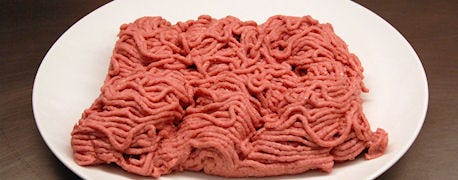
U.S. meat packer Cargill announced this week plans to include a special label on meat products containing finely textured beef – previously put in a category of products known to critics by the misnomer "pink slime."
The move comes as customers are demanding transparency in food production, a Cargill statement said. It will begin labeling packages of ground beef containing FTB with the statement, "Contains Finely Textured Beef," prior to the 2014 grilling season.

A similar product, LFTB from BPI, was mislabeled by media in 2012, leading to a nationwide decline in demand. (BPI photo)
"Our research shows that consumers believe ground beef products containing Finely Textured Beef should be clearly labeled," said John Keating, Cargill Beef president. "We've listened to the public, as well as our customers, and that is why today we are declaring our commitment to labeling Finely Textured Beef."
Customers grew leery of a similar product, Lean Finely Textured Beef, in March, 2012, when ABC labeled it "pink slime" in a news report. Soon, schools, hospitals and restaurants were cancelling orders and the LFTB manufacturer, Beef Products Inc., filed for bankruptcy. Later, BPI sued ABC for defamation.
But according to the American Meat Institute, LFTB is produced using high-technology food processing equipment to separate lean meat from fat, then ammonium hydroxide (ammonia and water) is used to kill bacteria that may be present. A similar process is used for Finely Textured Beef, except ammonium hydroxide is replaced with citric acid.
When explained to consumers with the additional information that Finely Textured Beef is 100% pure beef and 95% lean, Cargill said research shows it elicits a positive response.
To explain the process, Cargill launched a dedicated Finely Textured Beef website at www.groundbeefanswers.com, which will provide information about the product, including videos showing how Finely Textured Beef is made at its U.S. beef cattle processing plants.
The company said it has been producing Finely Textured Beef since 1993, with the approval of the USDA, and said it "has an important role to play in affordably feeding Americans."
About the Author(s)
You May Also Like




